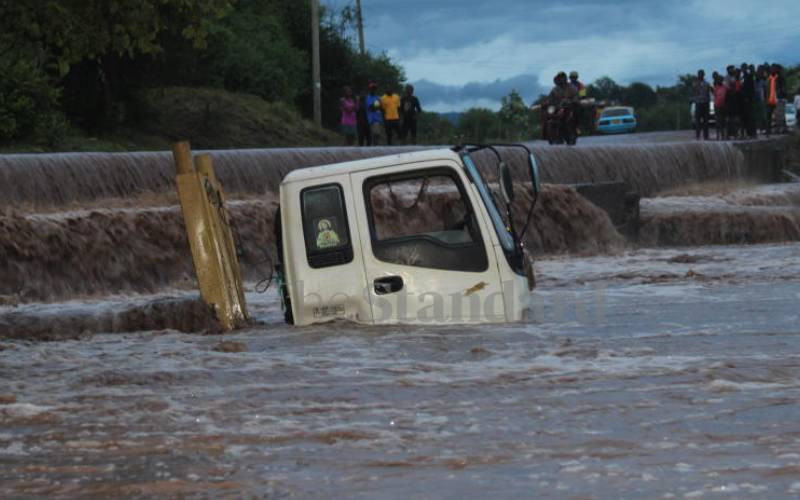By FRANKLINE SUNDAY
NAIROBI: Kenya’s porous borders and a sophisticated and influential counterfeiting industry are threatening genuine businesses and manufacturers. As a result, millions of employment opportunities are at stake.
New data from industry regulators indicate that while past counterfeited products were small, mainly imports, modern counterfeiters have set now up modern facilities locally.
They have elaborate distribution networks that push products across the region with sales figures that rival genuine manufacturers. “No product is safe and nobody is spared,” said Anti Counterfeit Agency Chief Executive Johnson Adera.
“Today, even drinking water is counterfeited and most consumers can’t tell the difference between genuine products and counterfeits. Some companies have suffered and have almost gone under purely because of counterfeits,” explains Adera.
“Several firms have raised the red flag because they either experienced a drop in sales or are informed by their salespeople that there are counterfeit products going by their brand names in the market.”
The Kenya Association of Manufacturers noted in a recent report that the economy loses more than Sh70 billion a year to counterfeits.
DIFFICULT TO QUANTIFY
Last year alone, the Anti Counterfeit Agency seized products valued at more than Sh255 million. These included pens, light bulbs and pencils.
The exact scale of the counterfeit market is difficult to quantify because some companies do not report the vice for fear of a losing customers’ trust. Some firms have however chosen to run campaigns to inform customers about counterfeits, hoping that they become cautious. IT firm Hewlett Packard (HP) has sustained a campaign against counterfeits, which is says have been eating into its bottom line. “Africa is a growing market and where there is growth, there is competition. Unfortunately, some of the illicit competition is from counterfeits,” said Jeff Kwasny, HP’s brand protection programme manager.
In 2012, police officers and Anti Counterfeit Agency officials seized counterfeit HP products valued at Sh120 million from a residential house in Nairobi’s Eagle Plains Estate but the owner, a Chinese national left the country in a huff.
“Counterfeiters have a lot of money and it is a lucrative business to them which they will go to extreme lengths to protect,” said Adera.
“People are using residential areas to keep these goods. Homes in high-end estates have been transformed into warehouses to hide and distribute counterfeits.” In addition to local manufacturers, some counterfeits come from China either directly or through Dubai. Electronics such as phones and home appliances are the main products that are seized from these markets but the region lacks a unified policy to combat the vice.
DIPLOMATIC CHALLENGE
Some countries in the block, like Uganda have inadequate structures to confront the illicit trade, creating a security loophole for the region.
Stay informed. Subscribe to our newsletter
Counterfeiters in Nairobi are said to import illicit merchandise from China to Uganda the re-export them back to Kenya. Kenya’s seizure of counterfeit goods and those that are in transit has presented diplomatic challenges. Her neighbours, particularly Uganda, has accused Kenya of overstepping its mandate.
In 2012, a container was seized, but Government declined to let it go. The case is still pending at the Mombasa High Court. Dumping of goods meant for export into the local market has been worsened by the establishment of a one-stop border point that allows a trader to pay all taxes in one port that makes it hard to trace a container that leaves the port. According to Prof Bankole Sodipo, from the African Intellectual Property Group, African States need to align their anti-counterfeit laws to provide a united front against China.
“A lot of the counterfeits are from China, and are being assembled in African countries. Most African states have warmed up to China in doing business. This ‘friendship’ means that African countries cannot chide China for flooding the African market with counterfeits,” he writes.
Davie Louis from Interpol says a new push to link the trade in counterfeits to more serious crimes like money laundering and terrorism is on course.
 The Standard Group Plc is a
multi-media organization with investments in media platforms spanning newspaper
print operations, television, radio broadcasting, digital and online services. The
Standard Group is recognized as a leading multi-media house in Kenya with a key
influence in matters of national and international interest.
The Standard Group Plc is a
multi-media organization with investments in media platforms spanning newspaper
print operations, television, radio broadcasting, digital and online services. The
Standard Group is recognized as a leading multi-media house in Kenya with a key
influence in matters of national and international interest.
 The Standard Group Plc is a
multi-media organization with investments in media platforms spanning newspaper
print operations, television, radio broadcasting, digital and online services. The
Standard Group is recognized as a leading multi-media house in Kenya with a key
influence in matters of national and international interest.
The Standard Group Plc is a
multi-media organization with investments in media platforms spanning newspaper
print operations, television, radio broadcasting, digital and online services. The
Standard Group is recognized as a leading multi-media house in Kenya with a key
influence in matters of national and international interest.





